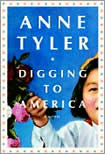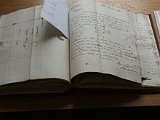
The focus on evidence-based teaching and learning is the result of wanting to improve our students' literacy and numeracy skills. You can ask a teacher if she can identify students in her classes who are learning at a higher level as a result of the teacher's work and if the answer is "yes", the next question is "How do you know?" We can only know if we have evidence and i don't mean anecdotal evidence. I first used this strategy with student readers after reading Aidan Chambers book Tell Me: Children, Reading and Talk. If you haven't read it, you should.
At the conference I used the THINK-PAIR-SHARE strategy with cluster principals after they read a paper "An evidence-based approach to teaching and learning" presented by Michele Bruniges at an ACER (Australian Council for Educational Research) conference in Melbourne last year.
Teachers are moving along the path of using evidence but in my experience most of the energy so far is in looking at results and comparing them with past years' results or state-wide results. The important development I think is what do you do with the data? It should lead to identifying weaknesses in the students responses, agreeing on strategies for improvement, having a go at teaching the strategies and then seeing if there is an improvement.
Mike Schmoker argues that there is a way for this to happen by focused structured teacher collaboration:
This simple, powerful structure starts with a group of teachers who meetregularly as a team to identify essential and valued student learning, developcommon formative assessments, analyze current levels of achievement, setachievement goals and then share and create lessons to improve upon thoselevels.
Picture these teams of teachers implementing these new lessons,continuously assessing their results and then adjusting their lessons in lightof those results. Importantly, there must be an expectation this collaborativeeffort will produce ongoing improvement - and gains in achievement.
If there is anything that the research community agrees on, it is this: theright kind of continuous, structured teacher collaboration improves the qualityof teaching and pays big, often immediate, dividends in student learning andprofessional morale in virtually any setting. Our experience with schools acrossthe nation bears this out unequivocally.... Mere collegiality won't cut it. Even discussions about curricularissues or popular strategies can feel good but go nowhere. the right image toembrace is of a group of teachers who meet regularly to share, refine andasssess the impact of lessons and strategies to help increasing numbers ofstudents learn at higher levels.






